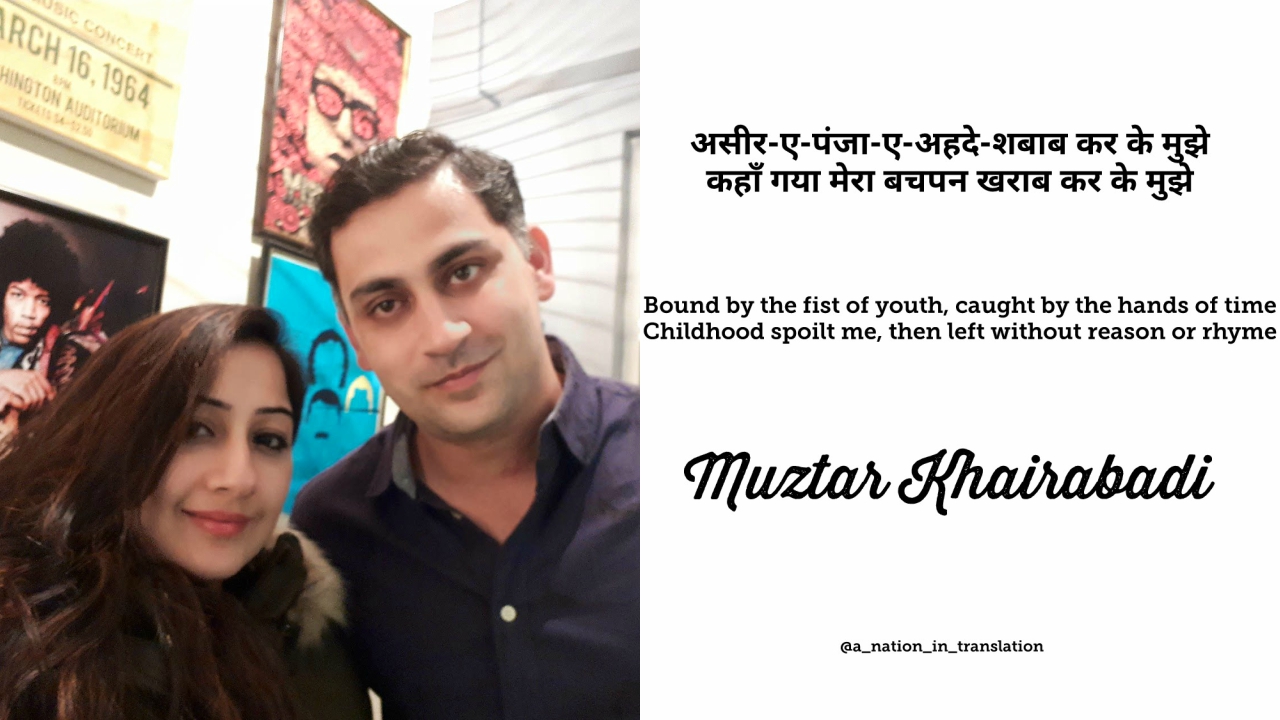
Sitting at an open mic Urdu poetry night organised by PoShaK poetry is a very different experience from being at a mushaira. For one, a mixed audience of youngsters and middle-aged sit in the informal performance space, with cushy chairs and colourful artwork on the walls. The poetry itself is not shers and shayaris in high-flown language. Using modern imagery, colloquialisms and conversational tone, the poets bring this elite form to the audience in a way they can understand and appreciate.
Initiatives of this kind comes at a vital time since Urdu, the language of mushairas, ghazals and nazms, is under attack. Last month, minority groups in Hyderabad protested when the government tried to stop admissions to Urdu medium schools. In Uttar Pradesh, Urdu is no longer an optional paper in the 2018 assistant teacher recruitments. Also, several corporators, who took their oath in Urdu, were made to reiterate it in Hindi, even though Urdu is the second official language of the state.
Aakash Chintkindi, founder of PoShaK, a spoken word group in Mumbai, admits to using it as a platform to take Urdu to the youth. "We began our initiative in 2017, with a series of workshops on ghazals. This year, we are adding open-mic nights dedicated to Urdu poetry," explains the poet and occasional teacher. Though more people use the language in the spoken-word space than before, Chintkindi wants to bring better quality poetry to the forefront in Urdu.
Something similar is behind Jash-e-Rekhta, the annual festival held in Delhi to celebrate Urdu "language and its culture", "its inclusive ethos and creative richness", to quote its founder, the industrialist Sanjiv Saraf. Into only its fourth edition, the festival has become a well attended fixture of the capital's cultural calendar for offering a mixed bag of discussions and readings by upcoming and leading poets, among them crowd turners like Gulzar and Javed Akhtar, interactions with film stars, besides performances by classical musicians, contemporary bands, dancers, dastangois, etc. The 2017 edition, for instance, had a jugalbandi by Sufi Kathak dancer Manjari Chaturvedi, and popular radio storyteller Neelesh Misra on courtesans, who were an important repository of Urdu culture.
If bringing the language to the masses is one way of overcoming the prejudices and misconceptions around it, then that's what husband-wife duo Avichal and Sripriya Chaturvedi are trying to do with A Nation in Translation, a project they started in February this year, through Instagram, Facebook and Twitter pages. "We translate Hindi and Urdu poems into English to bring the richness of the literature to the youth, who communicate and write largely in English," explains Avichal.

(Sripriya and Avichal Chaturvedi, creators of A Nation in Translation)
The project will also demystify Urdu and underline the intrinsic similarity with Hindi. "Urdu poetry is diverse and has little to do with religion – you have everything from love poems to atheist and anti-establishment ones." Adds Sripriya, "Rumi is renowned throughout the world because he has been extensively translated. Ghalib and Mir, if given that kind of exposure, would undoubtedly be recognised as literary greats internationally too, and deservedly so."
Mohammad Muneem, lead singer of Kashmiri-Urdu rock band Alif, notes that regional languages are considered "cool" now. "When we first started out as Highway 61 in 2008, English was the language that most bands were writing in. For me, though, Urdu has always been the language that I write in, that I think in. Over the years, as more and more people have started giving importance to regional languages, we have started to gain a bigger audience," explains the singer-songwriter. Alif's philosophy to focus on lyrics meant that many were initially hesitant to go for their performances, fearing they wouldn't understand the words. "Urdu is really not that different from Hindi; they come from the same origin – the Khariboli dialect, have the same syntax; and a lot of words that have become part of Hindi parlance are Urdu in origin. The audience soon realised that they could understand our songs quite well," Muneem shrugs.
Besides, Urdu shayari too has changed and includes today references to ashtrays, diaries and cigarettes. "Jagah nahi aur diary mein, /Yeh ashtray puri bhar gayi hai (There is no more space in this diary,/ This ashtray is now completely filled)", goes a poem by Gulzar.
Bringing Urdu into the 21st century may help overcome the current prejudices around the language, believes Chintkindi. "Every language needs to evolve, and Urdu has done so as well. We just need to keep up with the times in our poetic expression," he adds. "Urdu is very much a part of Indian culture and needs to be retained as such."
(With inputs from Gargi Gupta)